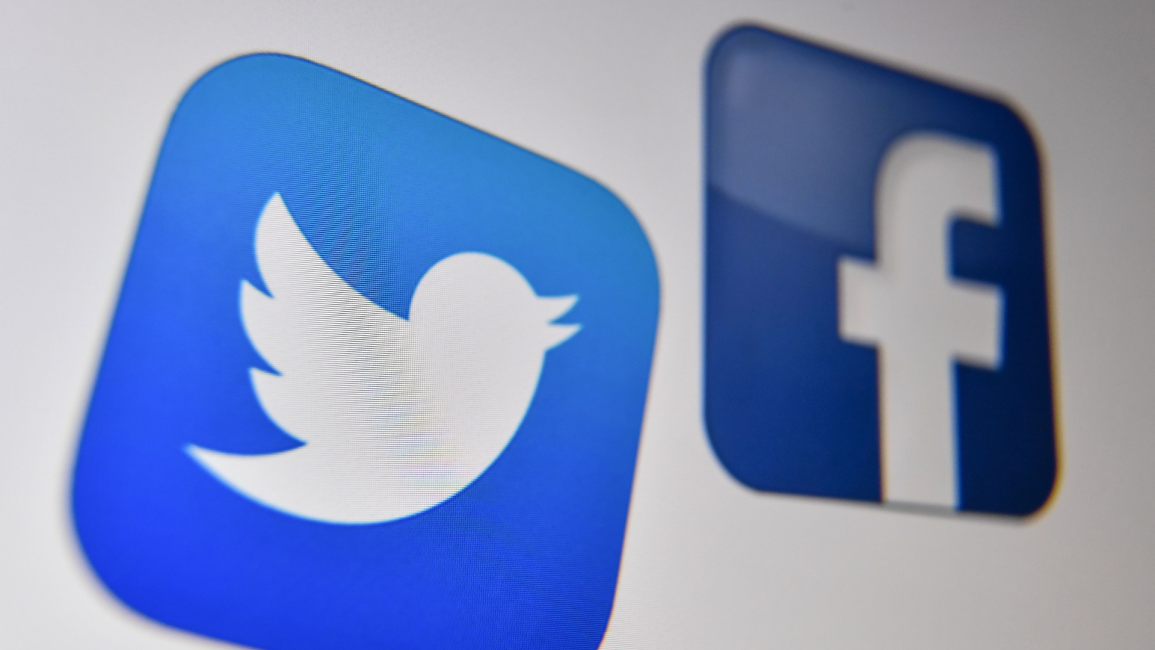Iraq calls on Facebook, Twitter to reconsider ban on militia accounts
The Iraqi Media and Communications Commission sent an official request to the social media giants on Friday, saying the move “affects institutions of the Iraqi state as well as respect for freedom of opinion”.
The PMF - Hashed al-Shaabi in Arabic - is an umbrella group comprising of more than 70 armed factions and has close ties to Tehran. The network is overseen by the Iraqi government.
Baghdad’s statements on Friday said the government has been inundated with complaints over the decision to block the social media accounts.
The commission urged the two American companies to reconsider the decision, which has prevented supporters of the PMF to express their gratitude to its members “for the sacrifices made to liberate Iraqi lands,” the statement read.
“The posts do now promote violence nor do they incite harm towards others on the basis of race, sect or religious affiliation,” it added.
The statement was published after Facebook blocked dozens of PMF-linked accounts and pages for posting images containing weapons and other various scenes of violence.
Twitter Post
|
The social media site also banned the circulation of pictures showing leaders of the PMF, including Abu Mahdi al-Muhandis who was assassinated in a strike that also killed Iranian Commander Qasem Soleimani.
Speaking to The New Arab’s Arabic-language service Al-Araby Al-Jadeed, an employee at the PMF’s media office said the group only posts military archive images.
“”Some PMF pages contain more than half a million followers on Facebook and they’ve been permanently closed due to what the company considers violations of publishing standards. We only publish photos from the military archive of operations carried out by the force in recent years,” Ahmed Adnan said, accusing the two sites of targeting personal and public pages of military commanders.
Though the PMF played a pivotal role in the fight against the Islamic State militant group in Iraq, the Iran-backed militia has been accused of human rights abuses including brutal attacks on protesters and targeted killings.
On Friday, the US Treasury slapped sanctions on the leader of Iraq's paramilitary Popular Mobilisation Forces, saying he was connected to "serious human rights abuse.”
The Treasury said Faleh Fayyadh, head of the state-sponsored network of pro-Iran fighters, was responsible for brutal attacks on protesters in October 2019.
Read also: Mosul review: Netflix's war film invites polarised responses
"By directing and supervising the murder of peaceful Iraqi demonstrators, Iran-aligned militants and politicians such as Faleh Fayyadh have been waging a violent campaign against Iraqi democracy and civil society," said Treasury Secretary Steven Mnuchin.
Secretary of State Mike Pompeo said in a statement that Fayyadh was also the member of a "crisis cell" supported by the Iranian Islamic Revolutionary Guards, branded a terrorist organization by the United States.
"Iran-aligned (PMF) forces continue to wage a murderous campaign against political activists in Iraq who are calling for free and fair elections, respect for human rights, and transparent and accountable governance," Pompeo said in a statement.
Fayyadh is one of the most senior Iraqi officials to be placed on the US sanctions blacklist.
He recently took part in public commemorations organized by Iraq on the one-year anniversary of the US killing of Islamic Revolutionary Guard commander Qasem Soleimani and Fayyadh's Iraqi lieutenant Abu Mahdi Al-Muhandis.
The sanctions seek to freeze any assets a designated person has under US jurisdiction and bans American firms - including banks and other companies with US branches - from doing business with them.
Follow us on Facebook, Twitter and Instagram to stay connected



